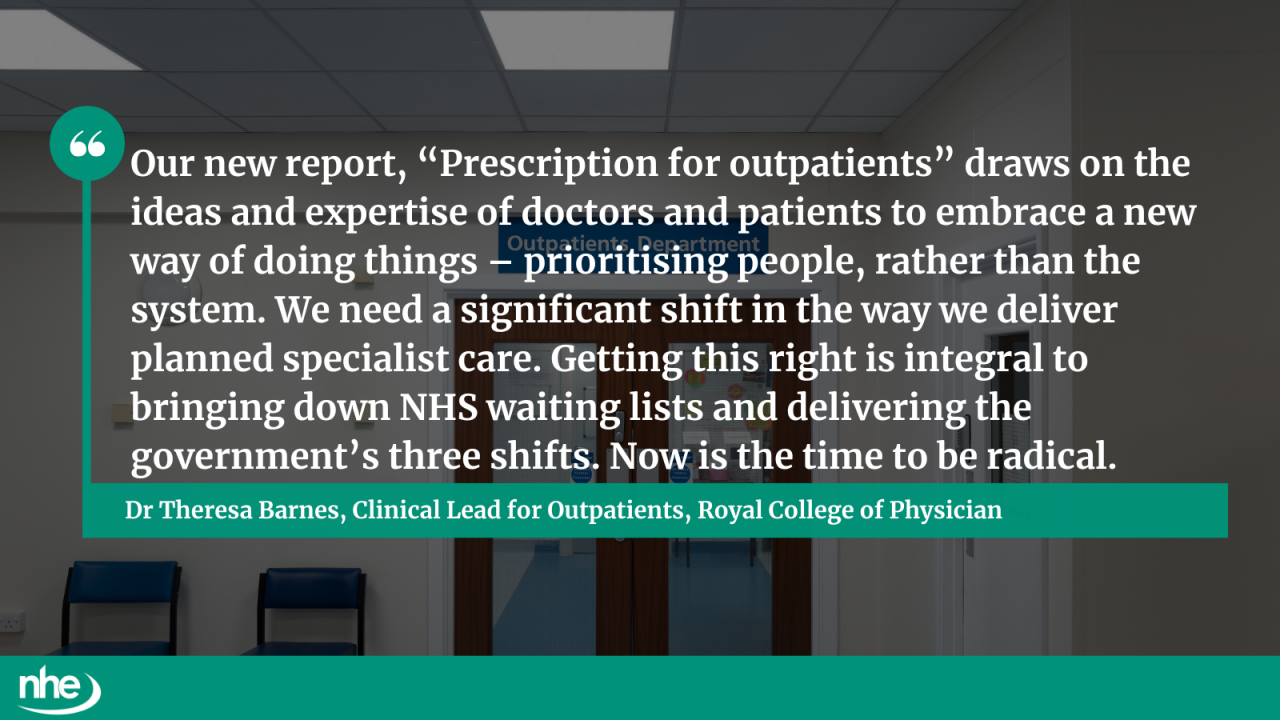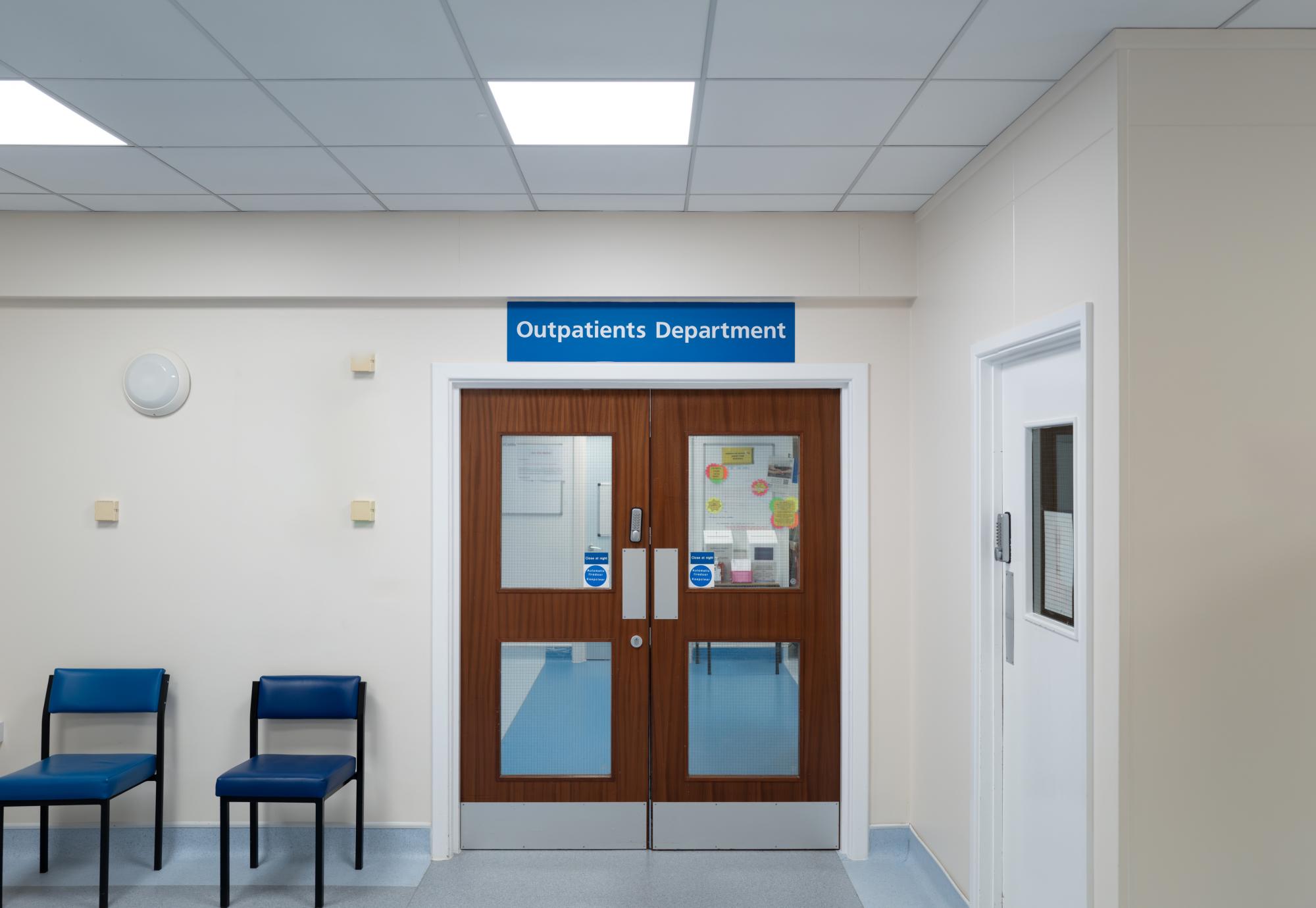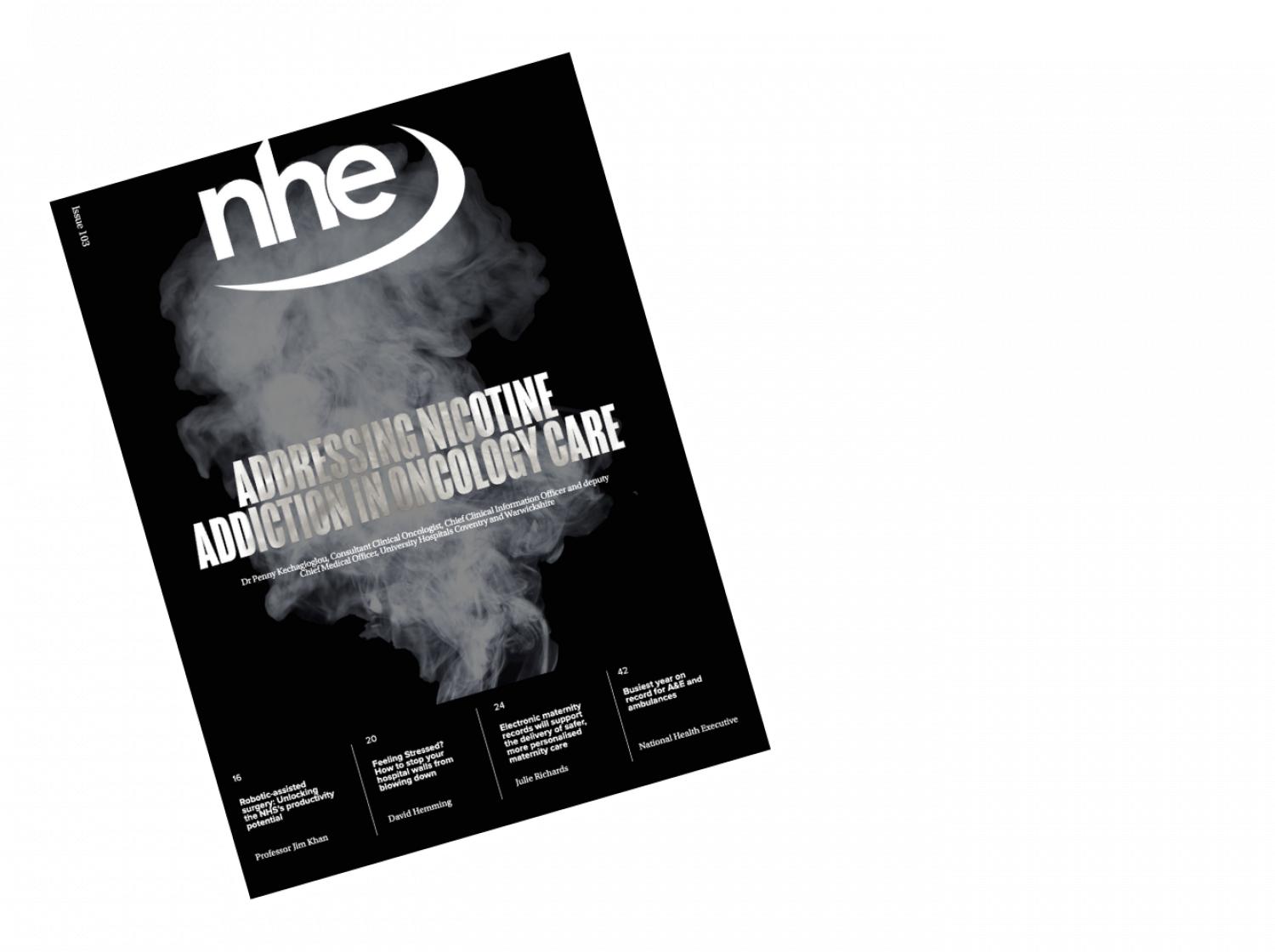The Royal College of Physicians has urged the UK government to prioritise outpatient care reform in its upcoming 10-Year Health Plan.
The current model of outpatient care is outdated and inefficient, with over 135 million appointments in 2023–24 often plagued by delays, poor communication, and confusion. Extensive engagement with patients, healthcare professionals, and NHS England has highlighted the need for significant changes to make the system work better for both patients and clinicians.
Outpatient care is a crucial component of the NHS, providing planned clinical investigations, tests, treatments, and potentially life-changing diagnoses. The RCP's call for reform follows Lord Darzi’s 2024 independent review, which pointed out rising NHS waiting times for planned care. As the population ages and more people live with multiple health conditions, the demand for outpatient services continues to grow, contributing to longer waiting lists.
RCP Clinical Lead for Outpatients, Dr Theresa Barnes, said:
“NHS outpatient care is fundamentally no longer fit for purpose. It is archaic, disjointed and ultimately ineffective for both patients and staff.
“It has remained largely unchanged for decades, despite advances in technology. Most people on NHS waiting lists are waiting for an outpatient appointment, patient care is increasingly complex, and the medical workforce is frustrated and desperate for change.
“Our new report, “Prescription for outpatients” draws on the ideas and expertise of doctors and patients to embrace a new way of doing things – prioritising people, rather than the system. We need a significant shift in the way we deliver planned specialist care. Getting this right is integral to bringing down NHS waiting lists and delivering the government’s three shifts. Now is the time to be radical.”

Senior doctors advocate for a shift towards prevention and early intervention, timely care closer to home, and flexible, multidisciplinary integrated care pathways. The RCP's vision for outpatient care includes five key ambitions:
- Timely care by the right person, in the right setting
- Empower patients through personalised care
- Improve communication mechanisms across professionals and with patients
- Use innovative models to maximise time spent with patients
- Harness data and technology to reduce inequalities and prioritise need
A 2025 snapshot survey of RCP members revealed that 57% lacked adequate resources to deliver outpatient activity remotely. Additionally, 66.8% of physicians reported limitations due to the availability of rooms, and only 31.2% felt they had the necessary time and information to prioritise patients on follow-up waitlists based on risk.
The RCP's new report redefines NHS outpatient care, describing eight transformational shifts, including moving from a 'one size fits all' approach to personalised care, from siloed teams to integrated pathways, and from activity-counting to outcome-focused care. These shifts are supported by five enablers: digital tools and technology, education and training, coding and data, commissioning and funding models, and workforce.
With almost 1 in 5 people over the age of 65 expected to live with four or more long-term health conditions by 2035, the RCP emphasises that reform of planned specialist care is vital to reduce waiting lists. The RCP Prescription for outpatients provides a 10-year roadmap with over 40 recommendations for patients, clinicians, governments, charities, professional bodies, and the NHS.
To successfully deliver reformed planned specialist care, the RCP calls on the government and NHS to expand the specialist workforce, increase medical school and postgraduate training capacity, and ensure adequate administrative support and digital infrastructure.
In response to the report, NHS Confederation’s Acute Director Rory Deighton commented:
“We welcome this report and its focus on the need to transform outpatient care to make it work more effectively for patients and staff.
“NHS leaders and their teams have been working incredibly hard and have managed to drive down waiting lists six months in a row. But at the current run rate, they will not achieve the government’s goal to hit the 18-week target in the required timescales. Making significant progress will require the large-scale transformation of outpatient services alongside capital investment, investment in digital services and acute services working more closely with colleagues in primary care and community services.
“We are committed to supporting the government and our members to achieve their aims and welcome this valuable contribution.”
Image credit: iStock



















